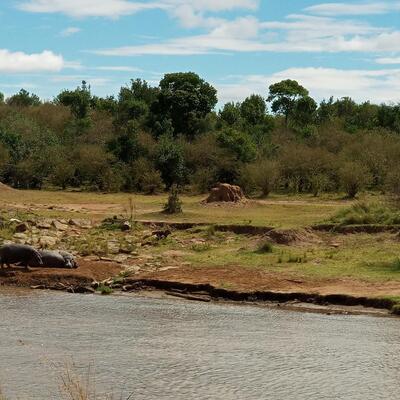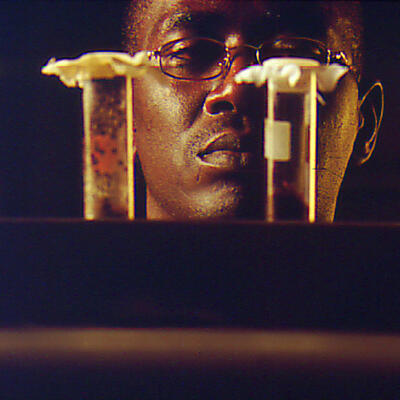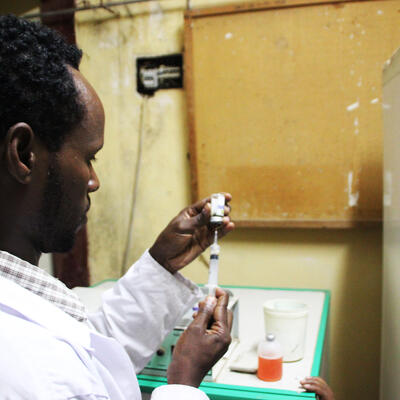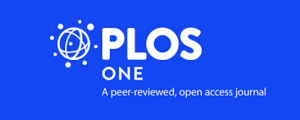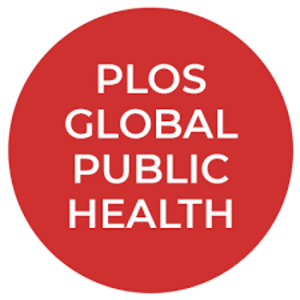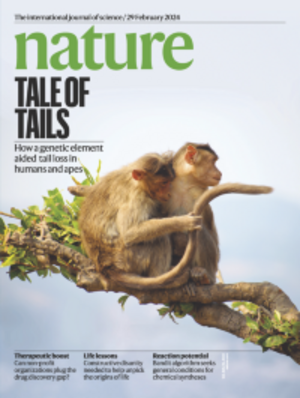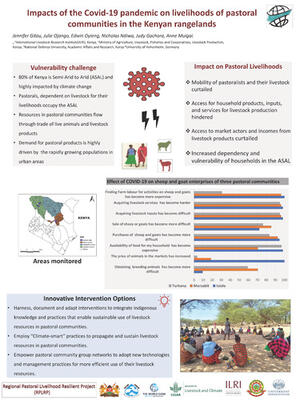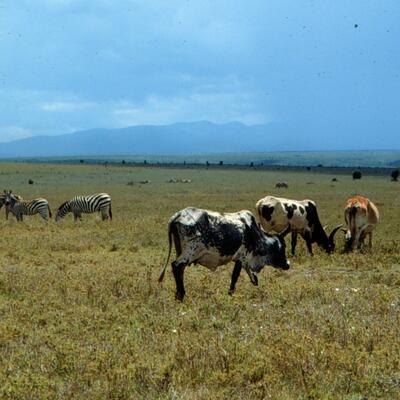
Peter Hotez at ILRI on vaccines and misinformation
Peter Jay Hotez, an American pediatrician and leading international vaccine advocate, spoke out against the harsh global inequalities in the vaccine rollout of COVID-19 at the institute’s weekly virtual meeting on the 26 March 2021.
In his discussion with Fèvre, Hotez discussed his work on vaccines and his advocacy on the importance of distributing vaccines for COVID-19 globally. Vaccines usually take a very long time to be developed, he said, and it’s no different for COVID-19 vaccines. The current vaccines did not arise out of thin air, but ‘have been built on a decade of research and development on coronaviruses like those that caused the Middle East Respiratory Syndrome (MERS) and Severe Acute Respiratory Syndrome (SARS).'
Hotez, an expert in the field of global health vaccinology and neglected tropical disease control, spoke in an interview with Eric Fèvre, a joint appointee at the International Livestock Research Institute (ILRI) and the Institute of Infection, Ecology and Veterinary Sciences, at the University of Liverpool. Hotez works on parasitic disease in subtropical environments and has a passion for poverty-related diseases that are neglected by big pharmaceutical companies.
Within the United States, Hotez is probably best known for his strong opposition to the anti-vaccine movement. As the father of a now-adult daughter with autism, he has spoken with eloquence and unique personal and scientific authority on the absence of a link between autism and childhood vaccination programs. His book on the subject, Vaccines Did Not Cause Rachel's Autism, was widely praised both for being at once scientifically rigorous and deeply humane. His new book, Preventing the Next Pandemic: Vaccine Diplomacy in a Time of Anti-Science was released in March 2021 and is already receiving laudatory reviews.
Like many others in the global health and One Health movements, Hotez has a link with ILRI: ‘My mentor Frank Richards worked at ILRAD [ILRI’s predecessor institute], and I know the story of your institution, which is an amazing treasure internationally.’ And like many scientists at ILRI, he is increasingly concerned that global social, economic and political trends are setting conditions for a growing proliferation of diseases and future pandemics.
Hotez is concerned that some of the same anti-vaccine lobbyists that he said are overwhelming social media in the US with false information about the safety of childhood vaccines have begun to set their sights on the COVID-19 vaccines, including in sub-Saharan Africa. ‘Anti-vaccine lobbyists are opportunists, very aggressive and dominate the internet with more than 480 anti-vaccine groups which are sharing overwhelmingly fake content,' he said. ‘We need to be careful not to get caught up in all this—or allow them to spread their misinformation globally.'
Fèvre, who chairs ILRI’s internal COVID-19 task force, noted that ILRI works hard to inform its employees and partners on COVID-19 and the need to protect themselves even as new variants and multiple vaccines complicate the narrative. Fèvre noted that there are many unsolved mysteries about this pandemic, such as why Africa hasn’t been as badly affected by COVID-19 compared to other continents such as South America or Europe.
Hotez acknowledged that there is much to learn about this pandemic, and noted it could be that there are host-genetic factors and climate change issues contributing to the lower-than predicted infection rates; or that undertesting and under-reporting of COVID-19 has artificially kept the numbers low. But referencing the recent increases in case and fatality rates being reported across of the continent, he said, ‘My worry now is that this unanticipated grace period may be coming to an end, with an ever-increasing number of more infectious variants circulating in the population.'
‘Africa is only getting a few crumbs of the vaccines and no vaccines are being made on the African continent,' he said. ‘African states need to build the capacity to build their own vaccines for their own threats and be able to respond to disease not only during an outbreak but to those that are relevant in the region.’
Ultimately, said Hotez, the solution lies with undertaking as many public health measures as possible, combatting misinformation about the vaccines, and urging the international community to listen to sound science. He added that the effectiveness of the available COVID-19 vaccines looks really good and asked that we get vaccinated as soon as they become accessible.
Photo credit: ILRI research working towards more effective livestock vaccines (ILRI/Paul Karaimu).







